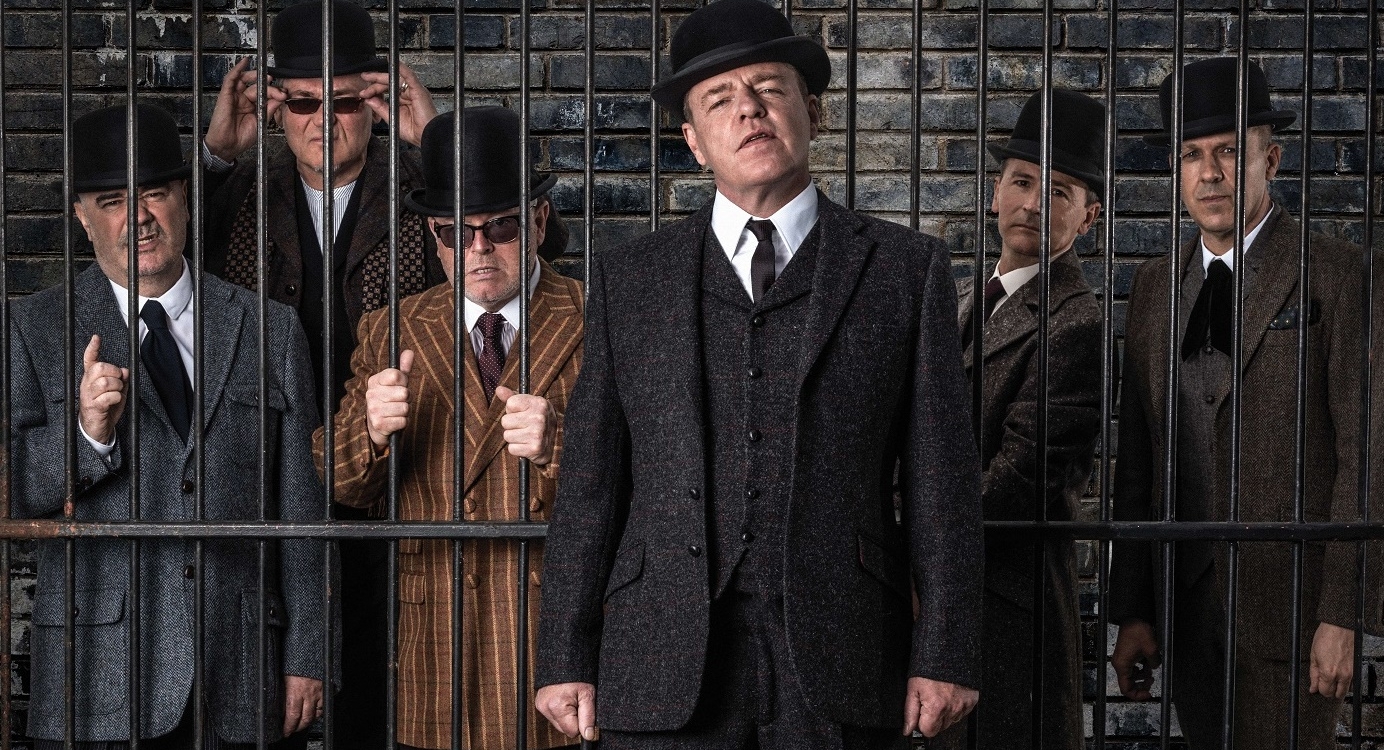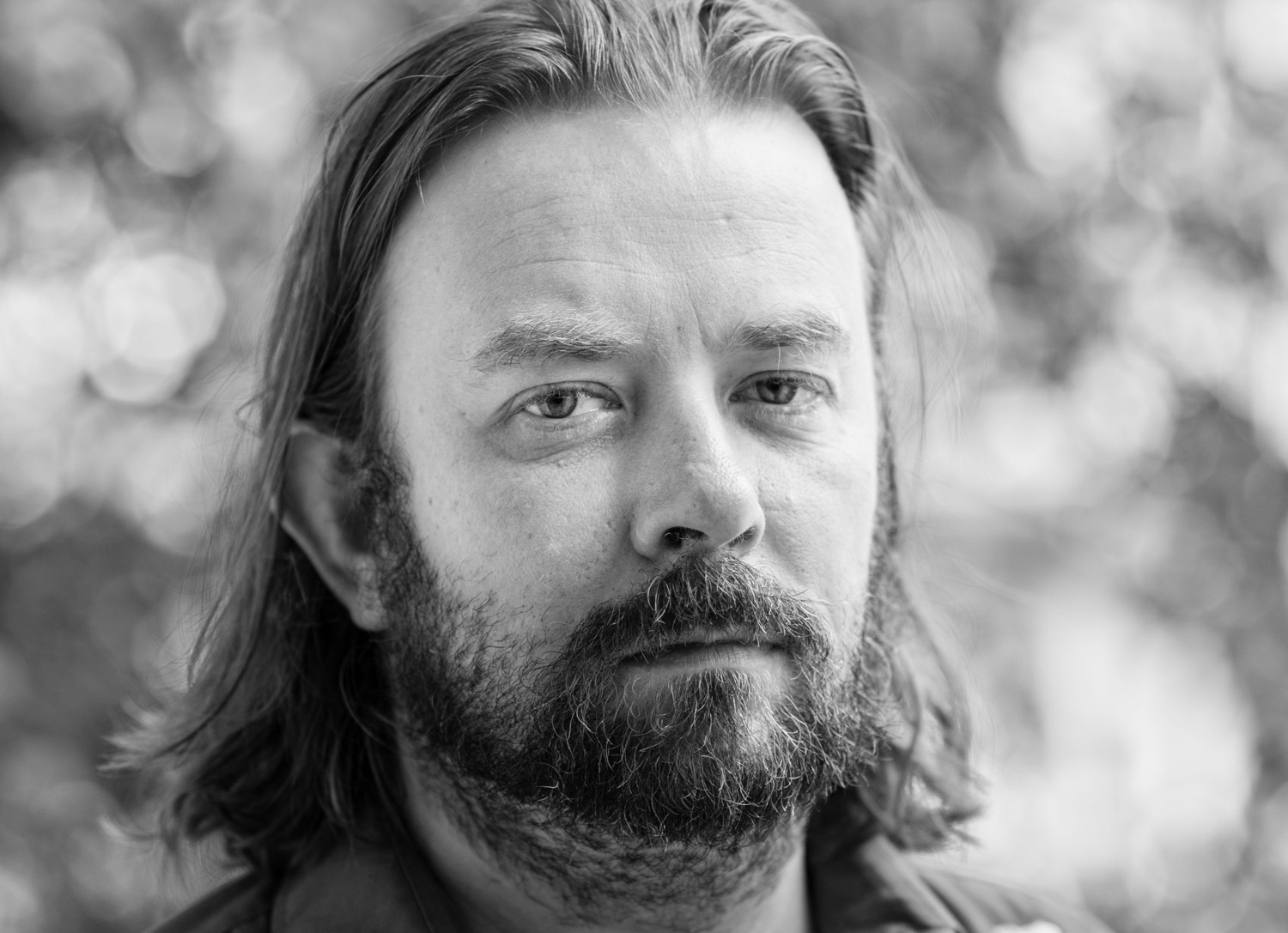In Boring, the third episode of the first series, Madness plays House of Fun at a local pub just prior to Mike, Vivyan, Rick and Neil entering. The band’s second appearance came on Sick, the penultimate episode of the second (and final) series. With a neighbourhood riot going on around them, Madness mimes its affable pop hit Our House, before joining in the violent shenanigans, culminating with saxophonist Lee Thompson charging at the camera and whacking it with his (balsa wood) saxophone.
“That was hysterical, doing that episode,” laughs Madness drummer Dan ‘Woody’ Woodgate. “That was the second time we were on the show. The stunt men were hysterical. They were bashing the crap out of each other with plastic bats and coshes. It was a really fun day.”
Woodgate had joined Madness a few years earlier when he answered an advertisement placed by keyboard player Mike Barson. At the time, Madness was known as Morris and the Minors. Madness’ first drummer left unceremoniously after a fight with Lee Thompson, and Woodgate wasn’t sure what he was in for. “I’d seen them play live, and I hadn’t seen anything like it in my life. They were weird and wacky, they didn’t appear to be the greatest of musicians but I loved the songs,” Woodgate says.
His new bandmates were reserved, verging on brusque, though bass player Mark Bedford reassured Woodgate that they were, in fact, very nice people once the ice was broken. “One day, after I’d heard all these stories about Suggs going to the football and being a bit of a hooligan, he turned up with these skinheads either side of him. But he was the nicest guy you’d ever want to meet. Then Lee turned up, and he was lovely as well, but nutty as a fruitcake,” Woodgate says.
Within a few years, Madness had become one of England’s most successful bands, with a series of hits including One Step Beyond (a cover of a classic reggae track by Cecil Campbell), Baggy Trousers, Our House, House of Fun and It Must Be Love. While Madness gradually embraced a more pop-friendly style, the band’s original style shared the same reggae and ska influence of bands such as The Specials, The Selector and The Beat.
“I knew nothing about ska at all when I first joined,” Woodgate says. “I grew up in a predominantly jazz-rock fusion world. I listened to Steve Hillage, Stanley Clark, John McLaughlin, that type of stuff, which was chalk and cheese with ska. You’ll gather from the drumming style in our first single, The Prince, that I knew nothing about reggae and ska. I grew to love the music.”
By 1986 Madness had split, and Woodgate moved on to a successful career with Voice of the Beehive. But in 1992 Woodgate got a call to see if he’d be interested in a Madness reunion. “I did think it was time by then for us to get back together,” Woodgate says. “The ‘80s, especially in Britain, was really bereft of music like we used to play. It all got very pretentious and took itself far too seriously, was too self-indulgent and pretentious. It was nice, because when we came back together again you could really see what we’d achieved.”
Madness has gone on to release five more studio albums, including last year’s Can’t Touch Us Now. The album title comes from a song written by Lee Thompson that reflects on the fate of Princess Diana and Dodi Al-Fayed. But Woodgate concedes that the title can be interpreted as a statement of resilience. “These days the only thing that really matters is what we think of the album. I suppose it’s about us accepting ourselves. We’ve got a different attitude now – it doesn’t really matter. We’re old now, so we’ll do what we do. You can’t touch us, you can’t hurt us,” Woodgate says. “We’ve learnt a few tricks over the years. I think if people can get to the shows, they’ll enjoy them.”
By Patrick Emery







